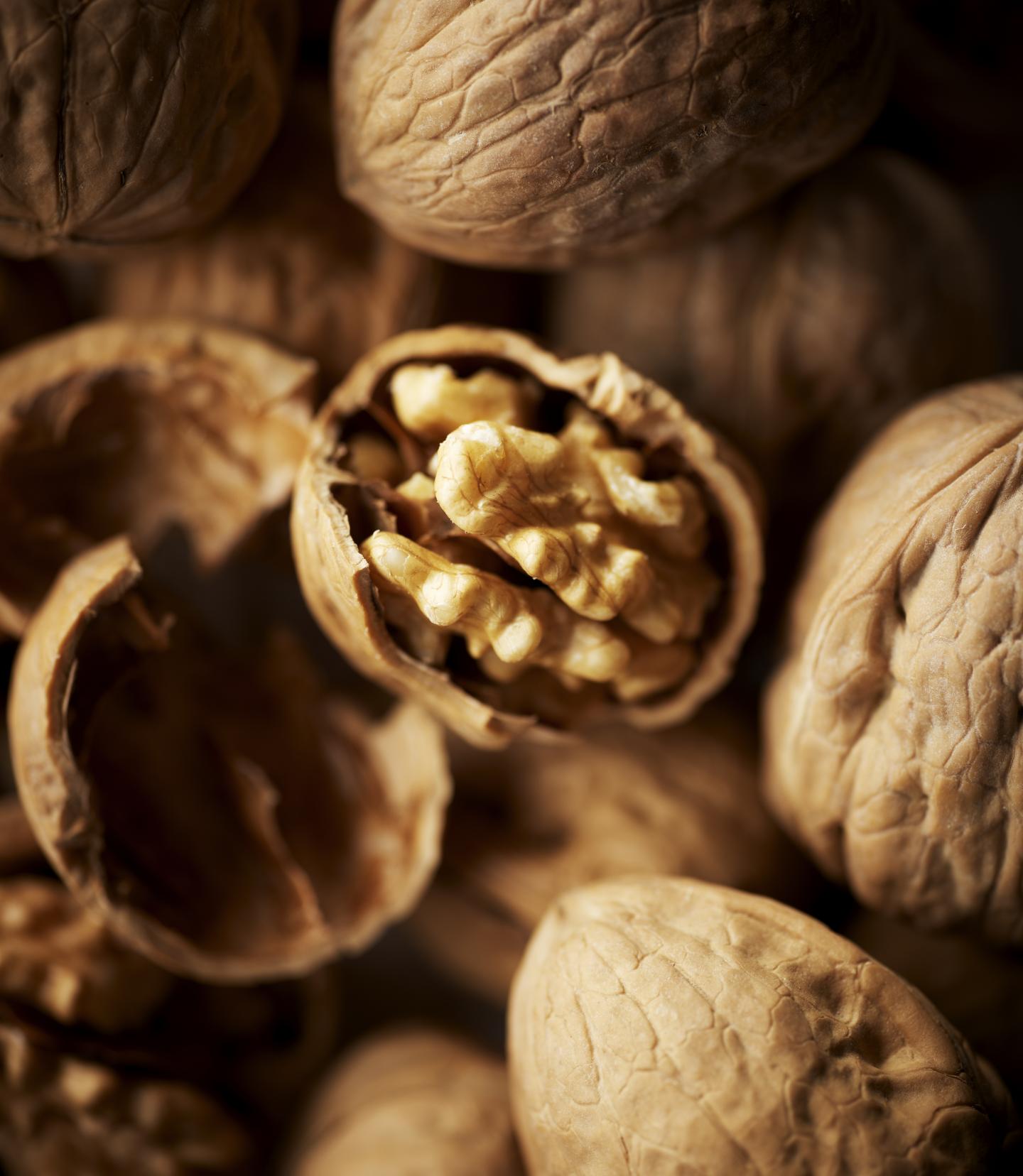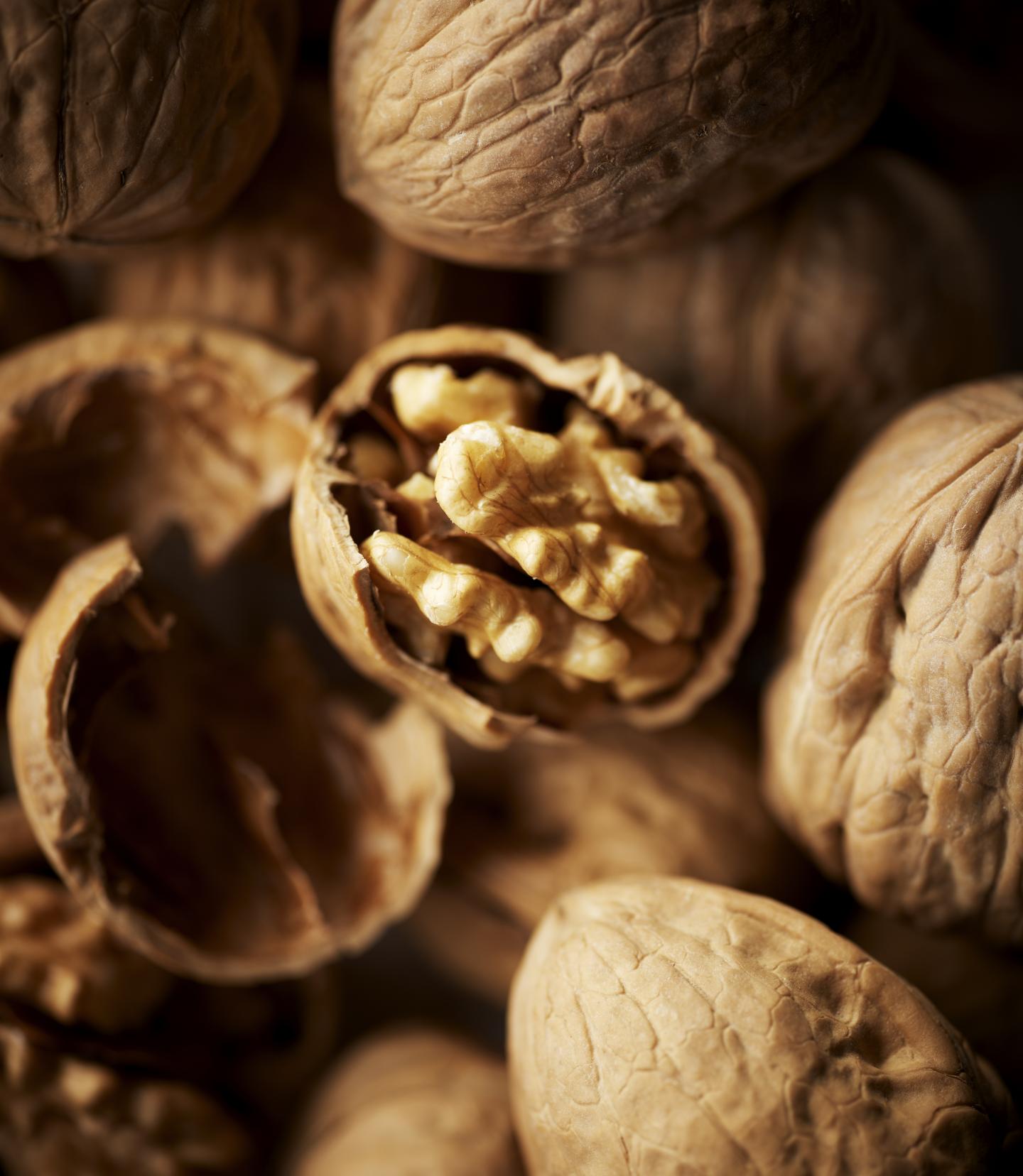
Credit: California Walnut Commission
FOLSOM, Calif., Feb. 28, 2017 – New animal research suggests eating a walnut-enriched diet may improve sperm quality by reducing lipid peroxidation, a process that can damage sperm cells. This form of cell damage harms sperm membranes, which are primarily made up of polyunsaturated fatty acids (PUFAs).1 Walnuts are the only tree nut that are predominantly comprised of PUFAs (one ounce contains 13 grams of PUFAs out of 18 grams of total fat). Research on the health benefits of PUFAs has advanced and most recently the 2015-2020 Dietary Guidelines for Americans has emphasized this type of fat as a replacement for saturated fats. As this is an animal study, there is no direct correlation to processes that occur in the human body. However, the findings support previous research suggesting that walnuts provide key nutrients that may be essential for sperm function.
Specifically, researchers found significant improvements in sperm motility and morphology in mice that consumed a diet containing 19.6% of calories from walnuts (equivalent to about 2.5 ounces per day in humans) compared to mice that did not consume walnuts. Sperm motility (movement) and morphology (form) are markers of semen quality, which is a predictor of male fertility.3
"What's fascinating is we found that eating walnuts can actually help improve sperm quality, likely by reducing peroxidative damage in sperm cells," says lead researcher, Patricia A. Martin-DeLeon, PhD of the University of Delaware. "More research is needed to understand the specific nutrients in walnuts that may contribute to this improvement, but the findings suggest that walnuts may be beneficial for sperm health."
This study supports findings from a published randomized control trial, which showed that eating 75 grams of walnuts per day (about 2.5 ounces) improved sperm vitality, motility and morphology in men who added walnuts to their diet compared to men who did not add walnuts.2 Healthy young men (117 total subjects) consumed their usual Western-style diet throughout the study and participated in monthly calls to share their dietary intake with the researchers. This research, led by Wendie A. Robbins, PhD, RN, FAAN of the UCLA Fielding School of Public Health and School of Nursing, established the potential role of walnuts in male fertility.
Intrigued by these findings, published in 2012 in Biology of Reproduction, Martin-DeLeon set out to understand the mechanism involved in improved sperm quality with a walnut-enriched diet. Healthy male mice as well as mice that were genetically predetermined to be infertile (Pmca4-/- gene deletion) were randomly assigned to a walnut-enriched diet or a control diet without walnuts that was followed for 9-11 weeks. Among the mice that consumed walnuts, fertile mice experienced a significant improvement in sperm motility and morphology and the infertile mice had a significant improvement in sperm morphology. Both groups experienced a significant reduction in peroxidative damage. However, investigators were unable to reverse the adverse effects on sperm motility in the infertile mice because of the genetic deletion in this group.
"This animal research sheds light on how walnuts may improve sperm quality and is a great follow up to our human study that showed what effect walnuts may have," says Dr. Robbins. "Studies that look at the factors underlying sperm quality improvements are very valuable for advancing research on this important topic."
As with any research, study limitations should be considered. Animal research is provided as background and used to inform future studies needed to understand the effect on humans. Larger and longer-term studies, as well as studies in more diverse male populations, are needed to confirm the mechanism involved in improved sperm quality with a walnut-enriched diet. Additionally, the impact on birth outcomes is still unknown and will require more investigation.
###
The California Walnut Commission (CWC) provided walnuts for the study. The CWC has supported health-related research on walnuts for more than 25 years. While the CWC does provide funds and/or walnuts for various projects, the actual studies are conducted independently by researchers who design the experiments, interpret the results and write the manuscripts.
About California Walnut Commission
The California Walnut Commission, established in 1987, is funded by mandatory assessments of the growers. The Commission is an agency of the State of California that works in concurrence with the Secretary of the California Department of Food and Agriculture (CDFA). The CWC is mainly involved in health research and export market development activities. For more industry information, health research and recipe ideas, visit http://www.walnuts.org.
Non-Discrimination Statement
,p>The California Walnut Commission (CWC) prohibits discrimination in all programs and activities on the basis of race, color, national origin, age, disability, sex, marital status, familial status, parental status, religion, sexual orientation, genetic information, political beliefs, reprisal, or because all or part of an individual's income is derived from any public assistance programs. Persons with disabilities who require alternative means for communication of program information (Braille, large print, audiotape, etc.) should contact the CWC offices at (916) 922-5888. To file a complaint of discrimination, write to USDA, Director, Office of Civil Rights, 1400 Independence Avenue, S.W., Washington, D.C. 20250-9410, or call (800) 795-3272 (voice) or (202) 720-6382 (TDD). CWC is an equal opportunity employer and provider.
The California Walnut Commission offices are located at 101 Parkshore Dr., Ste. #250, Folsom, CA 95630
References:
1Coffua LS, Martin-DeLeon PA. Effectiveness of a walnut-enriched diet on murine sperm: involvement of reduced peroxidative damage. Heliyon. 2017;3(2).
2Robbins WA, Xun L, FitzGerald LZ, et al. Walnuts improve semen quality in men consuming a Western-style diet: randomized control dietary intervention trial. Biol Reprod. 2012;87(4):101.
3World Health Organization. Laboratory Manual for the Examination and Processing of Human Semen, 5th ed. Cambridge, UK: Cambridge University Press; 2010.
Media Contact
Anna Hazen
[email protected]
206-268-2297





